Why you can trust Tom's Hardware
Our HDR benchmarking uses Portrait Displays’ Calman software. To learn about our HDR testing, see our breakdown of how we test PC monitors.
The U3224KB supports HDR10 signals through all three of its video inputs. It’s a DisplayHDR 600 screen, so it won’t quite match the searing brightness of a Mini LED panel, but it is still brighter than most OLEDs and many LCDs too.
HDR Brightness and Contrast
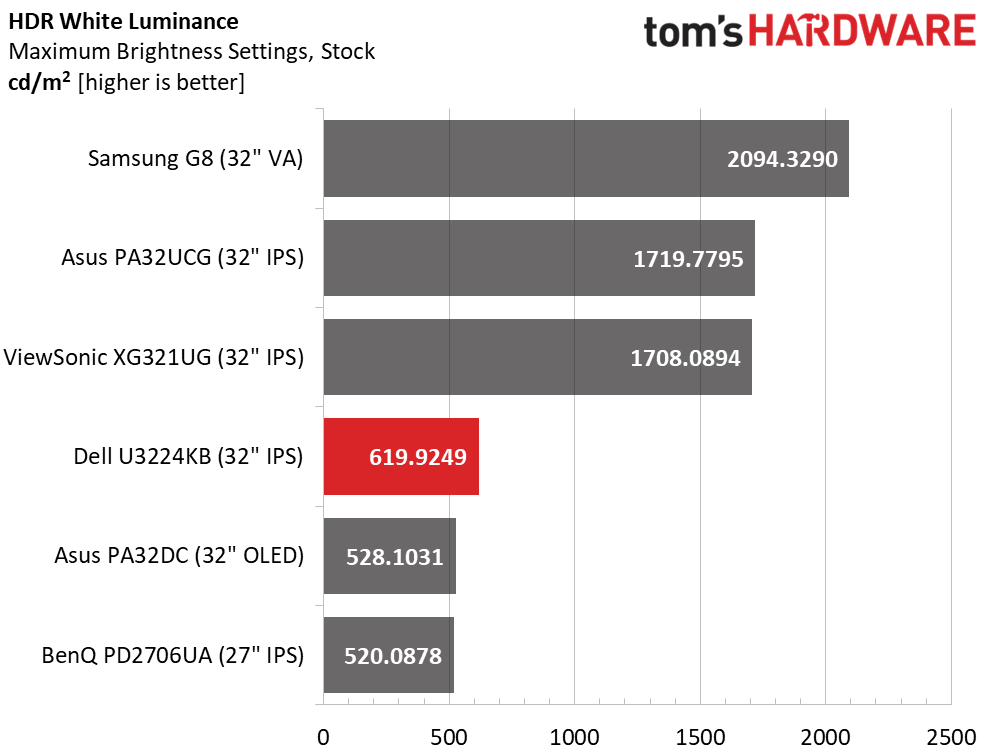
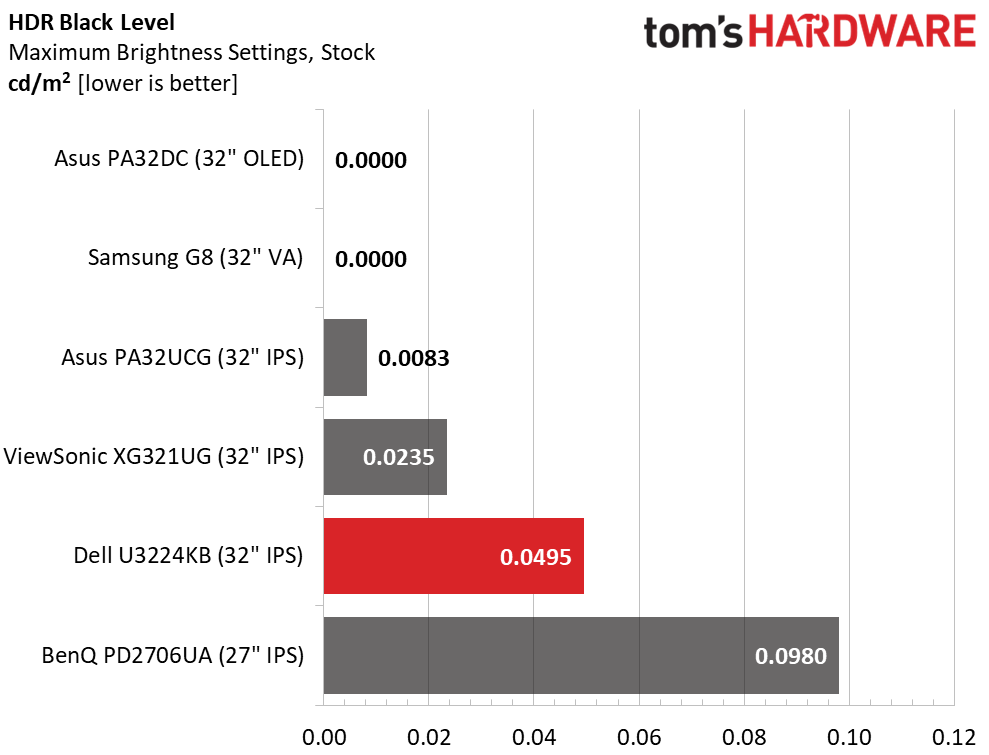
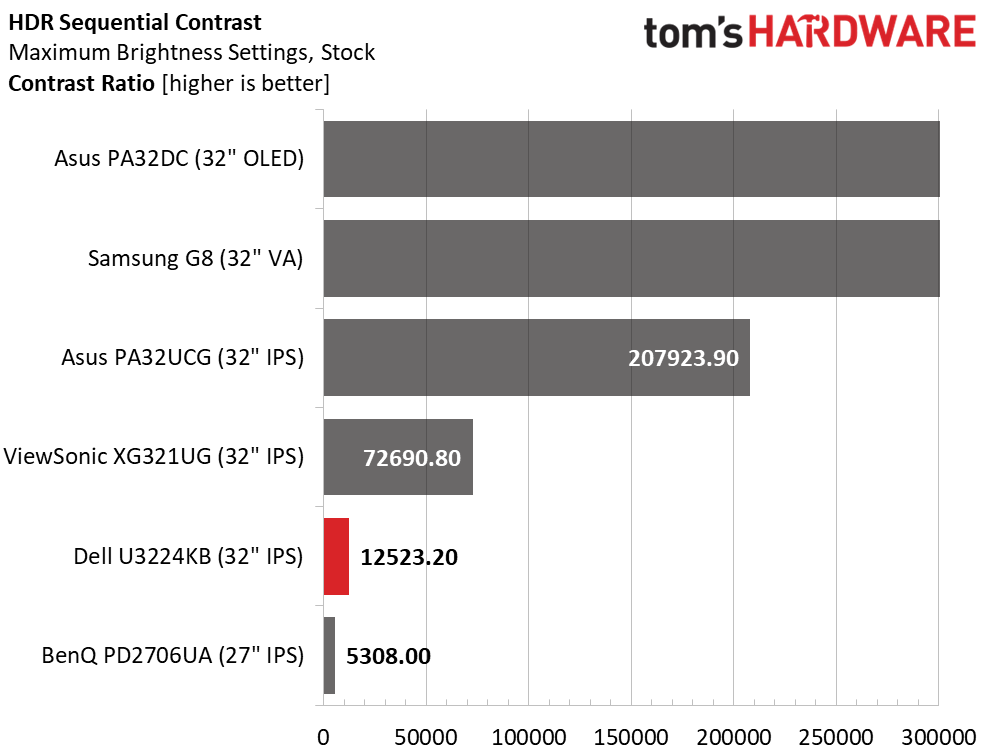
The U3224KB easily surpasses its 600-nit claim with almost 620 nits of total output. This was measured with a full-field white pattern. The Mini LED screens were measured with window patterns to hit their maximums. There is plenty of juice here, for sure.
A field-dimming feature lowers HDR black levels and increases dynamic range. That resulted in a respectable 12,523.2:1 score in my test. Though I found the HDR image very good, I can imagine how much better this monitor would be with a Mini LED backlight. Seriously though, it looks fantastic showing HDR video and playing HDR games thanks to its accuracy and superb color.
Grayscale, EOTF and Color
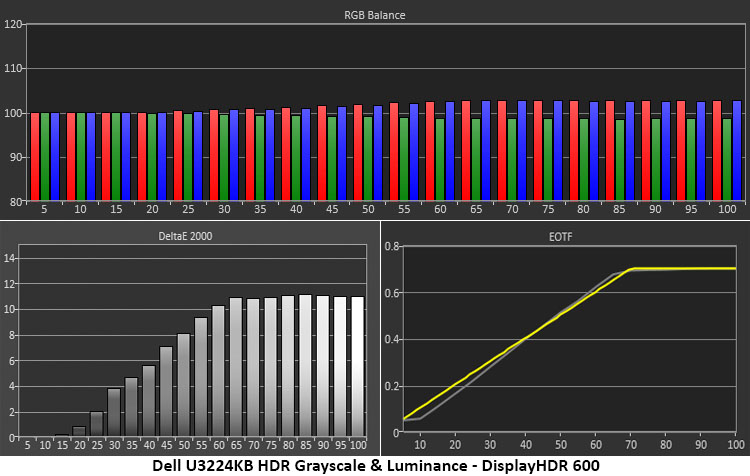
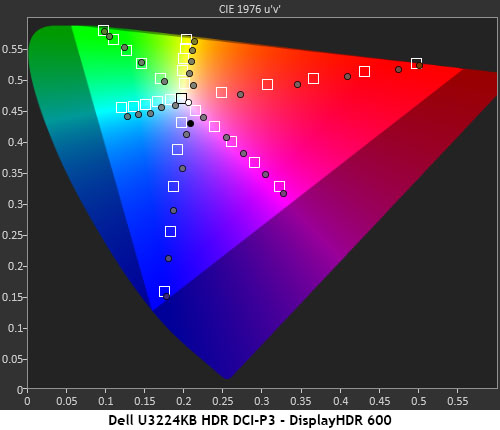
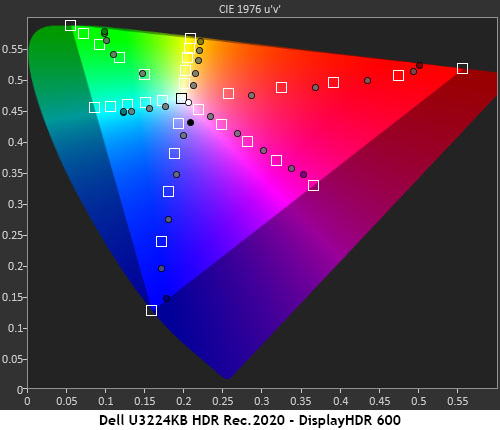
I tried all four HDR modes and settled on DisplayHDR 600 as the U3224KB’s best. The grayscale is a little warm, but the EOTF tracks well with a tone-map transition at 70%. There is some room for improvement here, so access to the RGB sliders would be welcome.
The gamut test shows a reasonable level of oversaturation in blue, magenta and red. This is typical of the wide-gamut displays I’ve tested in the DCI-P3 and Rec.2020 tests. In the latter, you can see where the U3224KB runs out of color at around 90% saturation. This is also typical performance. Hues track well in both charts and overall HDR color is well saturated with a natural look.
MORE: Best Gaming Monitors
Get Tom's Hardware's best news and in-depth reviews, straight to your inbox.
MORE: How We Test PC Monitors
MORE: How to Buy a PC Monitor
MORE: How to Choose the Best HDR Monitor

Christian Eberle is a Contributing Editor for Tom's Hardware US. He's a veteran reviewer of A/V equipment, specializing in monitors. Christian began his obsession with tech when he built his first PC in 1991, a 286 running DOS 3.0 at a blazing 12MHz. In 2006, he undertook training from the Imaging Science Foundation in video calibration and testing and thus started a passion for precise imaging that persists to this day. He is also a professional musician with a degree from the New England Conservatory as a classical bassoonist which he used to good effect as a performer with the West Point Army Band from 1987 to 2013. He enjoys watching movies and listening to high-end audio in his custom-built home theater and can be seen riding trails near his home on a race-ready ICE VTX recumbent trike. Christian enjoys the endless summer in Florida where he lives with his wife and Chihuahua and plays with orchestras around the state.
